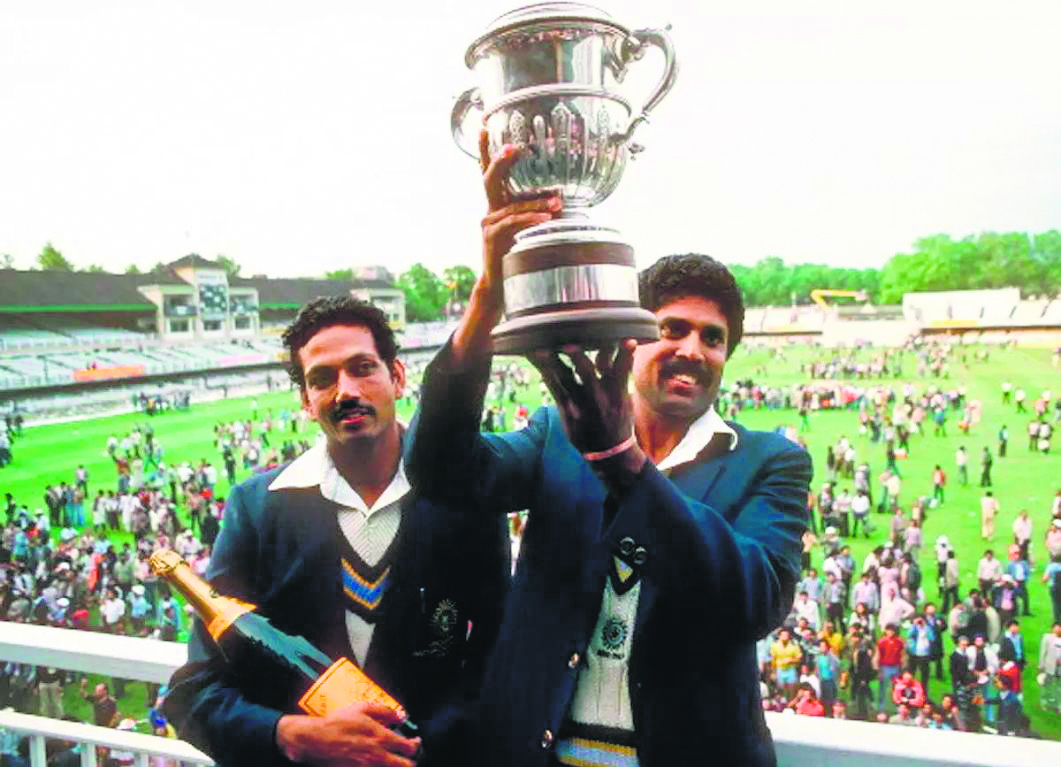Ahead of India’s Cricket World Cup final, here is a look at India’s first World Cup winning captain.
Kapil’s lifestyle is a conscious dictum of positivity and action, transforming every negative circumstance or instance into a positive one. This has been validated in the diverse chapters of his life, whether it’s leading India to triumph against all odds and win the World Cup or guiding his team to numerous victories as a responsible captain. His zeal extends to helping underprivileged girls and women flourish in society by providing them with education and opportunities for self-sufficiency through vocational training. In 2003, he started an organization called “KHUSHI” in Delhi, which has positively impacted the lives of 500,000 girls and women to this day. The name “KHUSHI” itself represents a manifestation of Kapil’s personality. He firmly believes that educating women has a ripple effect, benefiting the entire family and ultimately contributing to the country’s future.
Kapil Dev Ramlal Nikhanj was born into a Khatri family from Punjab, to Ram Lal Nikhanj and his wife Rajkumari, in Chandigarh. After the partition, his father, a timber merchant, had to leave everything behind and move his family to Chandigarh. Despite being a modest businessman, his father raised Kapil and his six siblings with discipline and care. His mother had a strong emotional influence on him and encouraged him to pursue his dreams. When Kapil was thirteen, his cricketing career took off thanks to his older brother, who introduced him to a local team. Kapil was a joyful boy who played every sport available and often found himself in mischief. He would frequently skip classes to watch movies or climb trees with his friends to enjoy mangoes. Academics were not his strong suit, but sports were. Whatever sport he played, he excelled in it. After playing for Haryana, he went on to represent the Indian team and became a true legend. He adorned his walls and shelves with National and International Awards such as the Padma Bhushan and Padma Shri, but these accolades did not influence his inherent nature, which is characterized by humility and graciousness. Overcoming all the disadvantages in his life, he never lost confidence in himself nor shied away from criticism. He stood tall with self-confidence and pride, continuously embodying the spirit of an Indian. He is married to a beautiful woman named Rumi, and he is proud of his daughter, who has made a mark in her chosen profession.
I had the opportunity to meet Kapil for the first time in Bangalore in 1983 while working in sales and marketing for the Taj Group. For some inexplicable reason, I was always tasked, with taking care of any cricket team booked into the Westend Bangalore, for a 15-day training camp. I had to attend to their needs, arrange lunches and dinners, and keep overly enthusiastic fans at bay. Kapil stood out as a man of few words but possessed an intrinsic sense of humor.
His thoughtfulness was visible in every act of his. I was a recipient of this magnanimity when he was the captain of the Indian team, playing an important match, against Australia. Observing my broken watch strap, he took time and had it sent for repair. This gesture from a captain who had just won the World Cup demonstrated his humane and grounded nature. There were many instances like this, each showcasing the humble and compassionate individual beneath the renowned legend. His life’s journey attests that everyone is born a winner, and the only competition is with oneself. His formula for success consists of hard work, sweat, positivity, and encouragement from his family. After retiring, he pursued golf passionately and achieved accolades in that field. He enjoys traveling, addressing young audiences, and sharing personal anecdotes to inspire them. His love for movies provided an escape into a fantasy world as a diversion to the stress of rigorous training. He is an avid foodie who relishes dishes like Dum Biryani and South Indian cuisine. Though he appreciates international gourmet food, his mother’s home-cooked Punjabi food remains his first choice.
Amongst his many habits, one notable practice was maintaining silence on match Days,’ until the coin was tossed, on the grounds. He has a penchant for clean, well-kept feet and people who emit a fragrant aura. He has authored two best-selling books and has been honoured by the Indian Army bestowing him the honour of an officer of the Armed forces. A salute to this great sportsman, patriot, humanitarian, and compassionate human being. He serves as a remarkable role model for youth and children to emulate.

